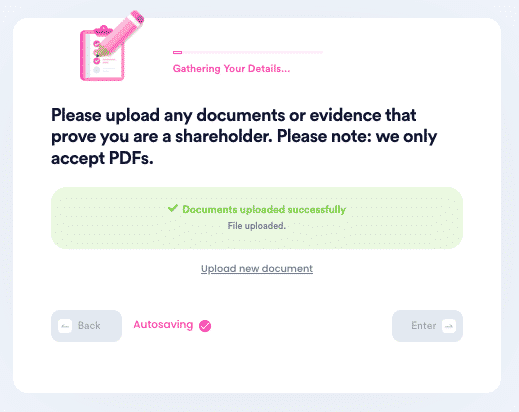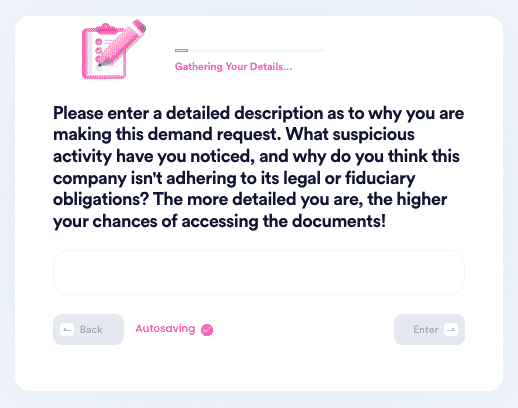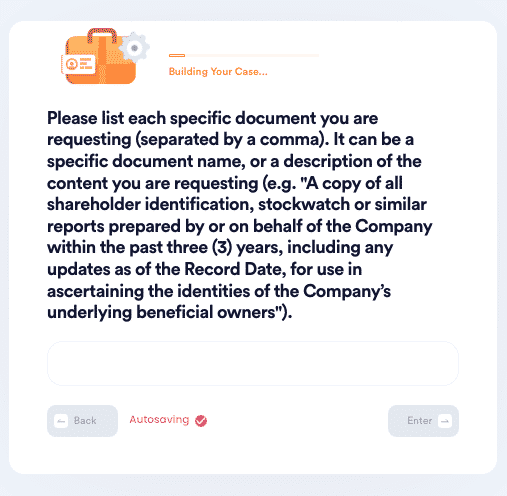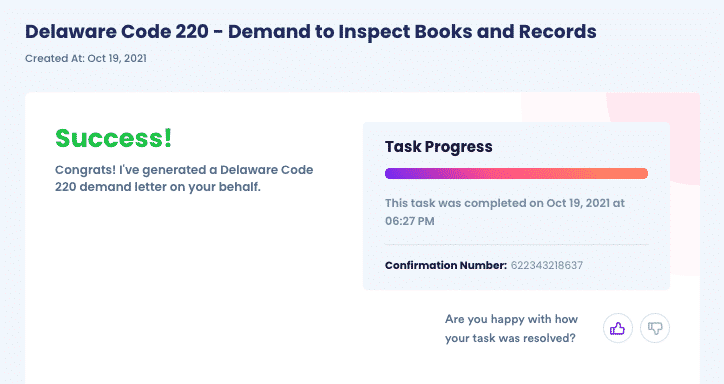Which Types of Information Requests Can Shareholders Make Under Delaware Law?
Anyone who is a shareholder, director, or officer of a Delaware corporation can use Section 225 of the if they want to challenge the results of a vote for directors or the appointment, removal, or resignation of any director or officer. Keep reading as we answer the question, which types of information requests can shareholders make under Delaware law?
It's never easy to make an investment decision. Making an informed decision requires thorough research and consideration of a company's financial situation, future prospects, and risk factors. However, for the average retail investor, there is often less information to analyze and base decisions on. We're at a disadvantage when it comes to understanding a company's operations and future outcomes compared to significant hedge funds.
The Delaware Code 220 is a valuable resource that allows stockholders to value a stockholder's interest and communicate with other shareholders before a director election. It also helps one investigate corporate misconduct or wrongdoing by a corporation's fiduciaries and much more.
Do Shareholders Have the Right to Inspect the Company? If So, What’s The Reasoning Behind It?
Stakeholders can obtain inspection rights from two different sources. Under , shareholders almost always have statutory inspection rights. Under the terms of the operating agreement (for an LLC) or another agreement, such as an investment agreement or the bylaws, shareholders may have contractual inspection rights. If a contractual source of rights exists, shareholders may demand to inspect documents on both grounds.
What Are the Requirements for an Investor to Make Information Requests Under Delaware Code 220?
There are only two requirements an investor is supposed to present:
- A "legitimate purpose" for the inspection (DGCL 220(b)).
- That the scope of the books and records sought by the stockholder is limited to what is "necessary and essential to accomplish the stated, proper purpose."
What Are Books and Records Regarding the Delaware Code 220?
When a shareholder wants to conduct a thorough investigation into a company, they need to have a set of necessary and sufficient documents. Courts have tried to order the inspection of Board and board committee inspection minutes and packages, new director surveys, officers' emails regarding the subject at issue (if kept on the company's email system), and document retention policies.
How to Make Information Requests by Yourself/on Your Own
What was once a simple matter of granting access to:
- Formal
- Board-level books
- Records reflecting board decisions
That has become a nightmare for many. It is a tedious and overcomplicated process and takes more time. In most instances, you will need the services of a lawyer too.
Next Steps for Submitting a Delaware Code 220 If You Can’t Do It Yourself
Since submitting Delaware code 220 yourself is a tedious job, one needs to get services from an experienced lawyer. The strict formatting and requirements for a Delaware Code 220 request to be valid can often be complex for the average person to understand.
According to DoNotPay, everyone, not just those with money or degrees, should have access to their rights. DoNotPay is here for everyone.
How to Submit a Delaware Code 220 With The Help Of DoNotPay
If you want to submit a Delaware Code 220 request but don't know where to start, DoNotPay has you covered. Create your cancellation letter in five easy steps:
- Search Delaware Code or Stock Inspection on DoNotPay.

- Confirm that the company you are hoping to inspect is a Delaware Corporation and that you are a stockholder.

- Tell us why you are requesting the information and what you plan on doing with it.

- Specify the names or types of documents you are requesting.

- That's it! DoNotPay will generate the formal request letter on your behalf and send it to the company.

Why Use DoNotPay to Submit Delaware Code 220
DoNotPay is the most relevant and justified means to getting your services right.
| Fast | You do not have to spend a lot of time trying to solve issues. |
| Easy | You do not have to struggle to fill out tedious forms or keep track of all the steps involved in solving your problem. |
| Successful | You can rest assured knowing you will receive the best results. |
Is It Possible for a Company to “Just Say No” to Section 220 Demands?
In most cases, no. Recently, Delaware courts have expressed dissatisfaction with companies' overly aggressive responses to Section 220 demands. The Delaware Court of Chancery ordered a company to pay the stockholders' hefty fees in pursuing the demand in a July 2021 ruling, where the company refused to engage with stockholders who had identified a reasonable basis to investigate wrongdoing, and the company failed to offer a single document before litigation commenced.
The takeaway is that judges prefer it when businesses try to resolve Section 220 demands amicably before going to court.
Do you want to investigate corporate misconduct or wrongdoing by a corporation's fiduciaries?
Contact us now and submit your forms for better and faster services.
Other related articles you need to have a look at:
- Section 220 Books and Records Demand
- Section 220 Demand Letter Sample
- How to File a Section 220 Delaware Code


